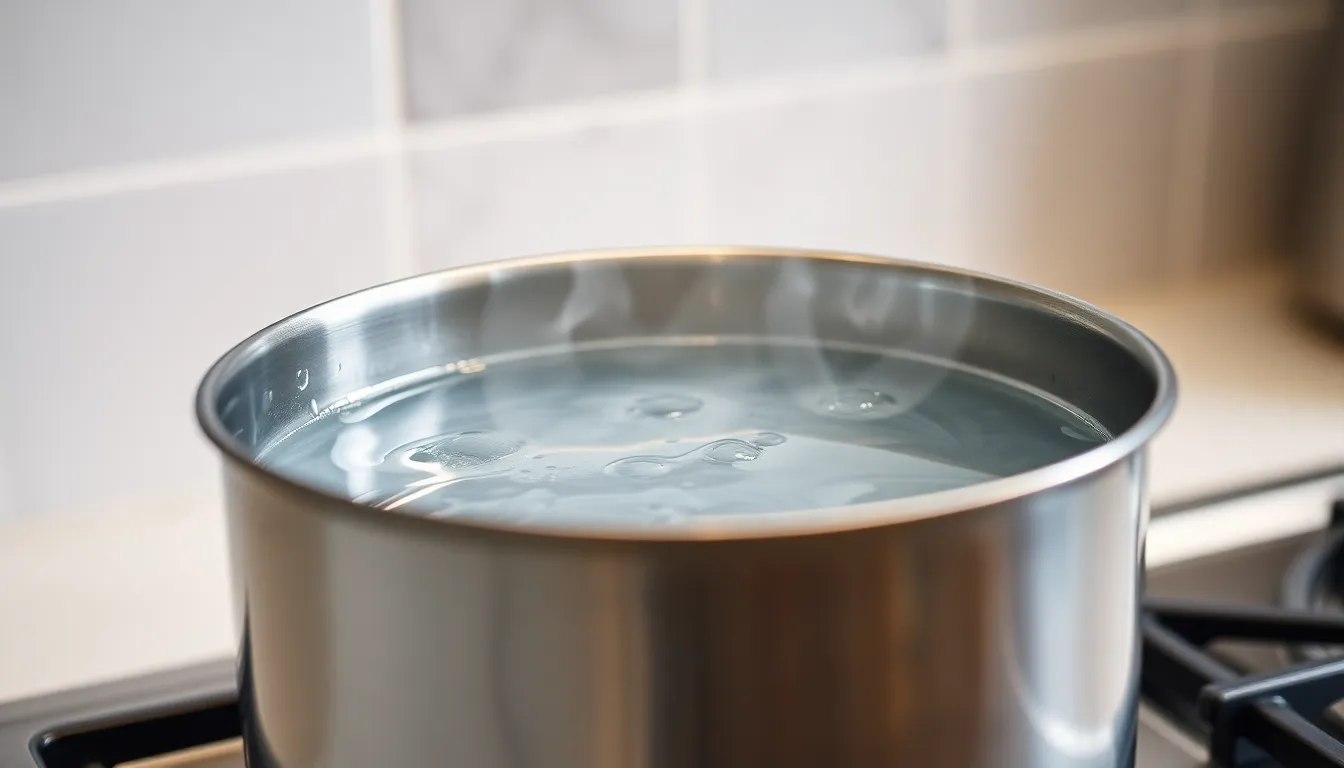In St. Louis, a boil water advisory can send shockwaves through the community, raising concerns about health and safety. These advisories typically arise when water quality is compromised, prompting residents to take immediate precautions. Understanding the implications of such advisories is crucial for ensuring the safety of families and individuals alike.
With access to clean drinking water being a fundamental necessity, the city’s response to these advisories plays a vital role in public health. Residents need to stay informed about the latest updates and guidelines to navigate these situations effectively. This article delves into the reasons behind boil water advisories in St. Louis, what actions to take during these warnings, and how to stay safe until the advisory is lifted.
Table of Contents
ToggleOverview of Boil Water Advisories
Boil water advisories occur when water supply may be contaminated with harmful pathogens. These advisories often result from infrastructure failures, such as pipe breaks or natural disasters, affecting water quality.
Advisories mandate that residents boil water for cooking, drinking, and brushing teeth. Boiling water for at least one minute eliminates most contaminants, ensuring safety. Residents must also avoid using ice made from tap water and opt for bottled water when possible.
Authorities issue these advisories swiftly to protect public health, communicating clearly through various channels like press releases and social media. Staying informed during an advisory significantly reduces health risks and enhances community safety.
Public response to advisories typically includes increased consumption of bottled water and heightened vigilance regarding hygiene practices. Understanding the implications and actions required during a boil water advisory is critical for all residents.
Reasons for Boil Water Advisory in St. Louis

Boil water advisories in St. Louis arise from specific health and safety concerns related to water quality. Several factors contribute to these advisories, including contamination risks and infrastructure challenges.
Contamination Risks
Contamination risks during water supply disruptions often stem from pathogens or harmful chemicals entering the water system. Bacterial contamination, such as E. coli or Salmonella, poses serious health threats. Chemical pollutants from industrial activities or agricultural runoff can also compromise water safety. Routine testing and monitoring help identify these risks, but emergencies necessitate advisories protecting the public by requiring boiling water for consumption and food preparation.
Heavy Rainfall and Infrastructure Issues
Heavy rainfall significantly impacts water quality as it can overwhelm drainage systems, leading to overflows. Flooding events may allow surface water and debris to infiltrate treated water supplies. Aging or damaged infrastructure, such as water mains, exacerbates these problems, increasing the likelihood of leaks and contamination. Authorities monitor weather conditions and infrastructure status closely, issuing advisories promptly to safeguard community health.
Impact on Residents and Community
Boil water advisories significantly affect St. Louis residents, raising both health concerns and daily life disruptions. Awareness of these issues ensures the community can respond effectively during such emergencies.
Health Concerns
Health risks associated with boil water advisories include the potential presence of harmful pathogens like E. coli and Salmonella. Consuming contaminated water can lead to gastrointestinal illnesses, particularly in vulnerable populations, such as the elderly and children. Additionally, exposure to chemical pollutants from industrial activities poses long-term health hazards. Precautionary measures, such as boiling tap water before use, become essential to eliminate these risks and safeguard public health.
Daily Life Disruptions
Daily routines undergo significant changes during boil water advisories. Residents often face challenges in simple tasks, such as cooking and maintaining hygiene. For example, cooking food requires boiling water, which may lead to higher energy consumption and longer meal preparation times. Brushing teeth with boiled or bottled water adds steps to personal hygiene practices. Accessing bottled water becomes crucial, often resulting in increased expenditures and time spent sourcing safe drinking water. Furthermore, local businesses experience interruptions, from adjusting food preparation methods to potential declines in customer patronage. The overall lifestyle adjustment necessitates enhanced community cooperation and resourcefulness.
Official Response from Local Authorities
Local authorities in St. Louis take boil water advisories seriously, prioritizing the health and safety of residents. Immediate actions follow to communicate updates and resolve water quality issues.
Communication and Public Notices
Authorities disseminate information through multiple channels, including press releases, social media, and local news outlets. Clear messages outline the reasons for the advisory and necessary precautions. City officials encourage residents to monitor official sources for real-time updates. Additionally, community leaders may host public meetings to address concerns and answer questions, fostering transparency and trust.
Measures Taken to Resolve the Issue
Upon issuing a boil water advisory, local authorities implement rapid testing of water quality to identify contaminants. They collaborate with environmental agencies to analyze data and determine causes, such as infrastructure failures or contamination events. Repair crews mobilize quickly to fix leaks or breaches in water lines. Authorities provide bottled water distribution points to ensure residents have access to safe drinking water during the advisory. After resolving the issues, officials conduct thorough testing to confirm water safety before lifting the advisory, ensuring that residents can resume normal water usage without health concerns.
How to Prepare and Stay Safe During an Advisory
During a boil water advisory, residents must take specific actions to ensure their safety and health. Understanding and following guidelines can significantly reduce risks associated with contaminated water.
Safety Precautions
Residents should boil water for at least one minute before using it for drinking, cooking, or brushing teeth. Boiling kills harmful pathogens and makes water safe for consumption. It’s also crucial to avoid using tap water for making ice or washing fruits and vegetables unless boiled. Store boiled water in clean containers for hygiene. Individuals should wash hands with soap and clean water, or use hand sanitizer, to prevent the spread of germs. Maintaining heightened awareness of hygiene and food safety practices is essential during this period.
Emergency Water Supply Tips
Establishing an emergency water supply prepares residents for an advisory. Stock bottled water from reliable sources, ensuring at least one gallon per person per day for three days. Consider using water purification tablets or filters if bottled water isn’t available. Additionally, keep a designated supply of clean containers for boiling and storing water, as well as a manual can opener for canned goods. Regularly check and replenish emergency supplies to stay prepared for future advisories.
Boil water advisories in St. Louis are significant reminders of the importance of water safety. Residents must stay informed and proactive during these advisories to protect their health and well-being. By understanding the risks and taking necessary precautions, individuals can minimize the impact on their daily lives.
Community cooperation and adherence to guidelines are essential in navigating these challenges. As local authorities work diligently to resolve water quality issues, staying updated through official channels ensures that residents can quickly return to normal routines once advisories are lifted. Awareness and preparedness are key to maintaining safety and health during these critical times.


